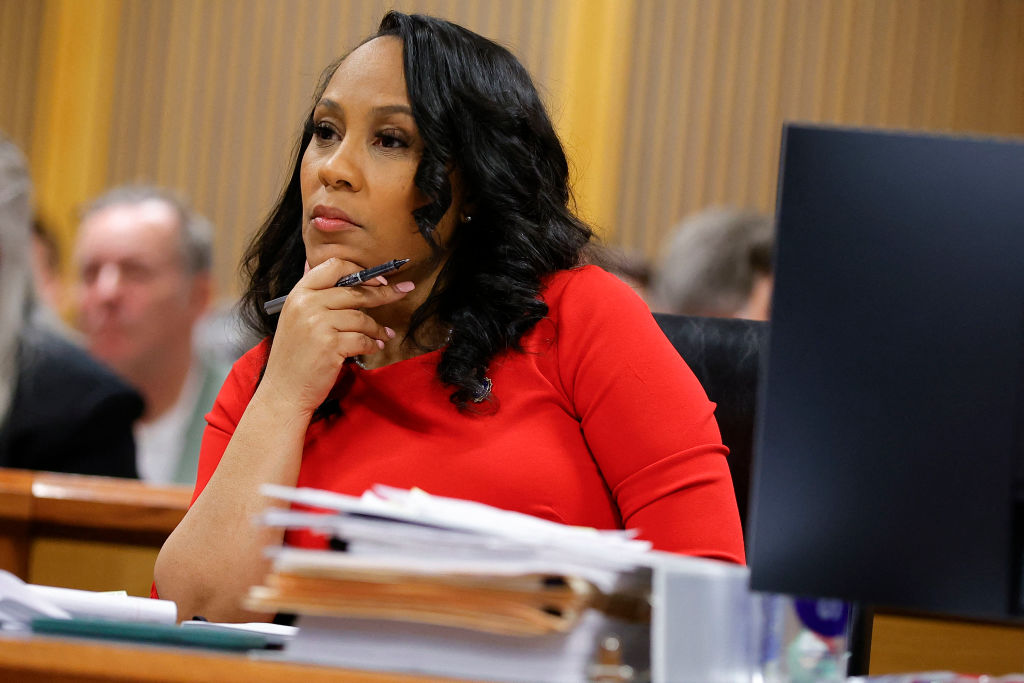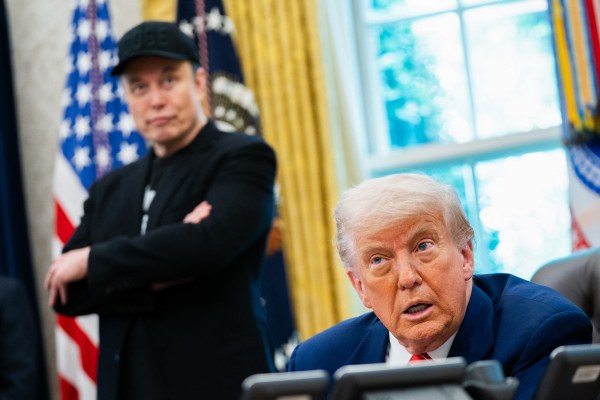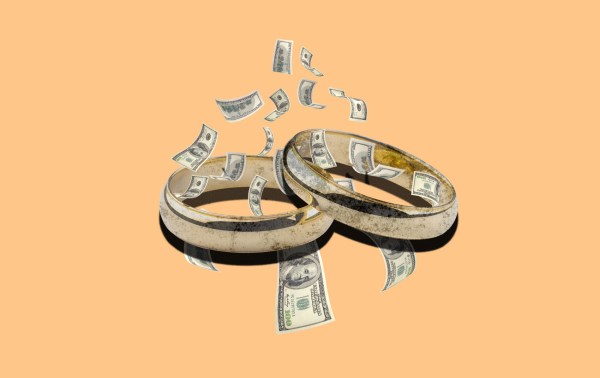Welcome back to The Collision, where we’ll dig into the fallout surrounding the decision to keep Fani Willis on the criminal case in Georgia against Donald Trump. We’ll also look at an interesting new public opinion poll on the four criminal cases facing Trump.
The Docket
- It’s official: Trump’s Manhattan criminal trial is delayed for at least a month. Scheduled to begin on March 25, the trial won’t start until at least mid-April after Judge Juan Merchan granted prosecutors’ motion to postpone the trial following the emergence of new documents. The former president’s team is seeking a longer delay or outright dismissal of the case, and Merchan will hold a hearing to consider this motion on March 25.
- That date looms for Trump for another reason: It’s his deadline to secure a bond to cover the nearly half-billion-dollar judgment against him in a civil fraud trial that ended earlier this year. After Trump struggled but successfully posted a $91.6 million bond from the E. Jean Carroll defamation suit, he is struggling to find bond companies willing to help him with the much larger amount. It’s possible the state could seize Trump’s assets if he is unable to meet the deadline next week.
- A House Oversight Committee hearing examining Hunter Biden’s business operations devolved into a bit of a circus on Wednesday. There was Democratic Rep. Jared Moskowitz, who arrived at the hearing wearing a rubber Vladimir Putin mask. A Republican-called witness, former Hunter Biden associate Tony Bobulinski, called out two Democratic members of the committee by name and said they would “continue to lie.” And Chairman James Comer claimed Democrats were “beclowning themselves.”
- Despite being invited, neither Hunter Biden nor his former business partner Devon Archer appeared at the Oversight hearing. In a letter to the committee, Archer’s lawyer said his client did not have the time to prepare for the hearing since the March 7 invitation and called the request from Comer “patently unreasonable.”
- Comer ended the hearing by saying he would invite Joe Biden himself to testify at a future hearing, where the president could be expected to get questions from Republican members about his alleged involvement in his son’s foreign influence business. The announcement comes as Comer and House Republicans continue to struggle at making a convincing case of wrongdoing in their impeachment inquiry. It’s unlikely the president would ever voluntarily appear before the committee, and it’s unclear whether Comer would pursue an actual subpoena.
Fani Willis’ Pyrrhic Victory

In the end, the judge overseeing the Georgia criminal conspiracy case against Donald Trump did not dismiss the case or remove Fulton County District Attorney Fani Willis. But the damage to the prosecution is done.
In his opinion issued last Friday, Judge Scott McAfee held that the defendants had failed to prove that there was a financial conflict caused by the personal relationship between Willis and special prosecutor Nathan Wade. But, borrowing a line from playwright Tennessee Williams, he wrote that “an odor of mendacity remains.” He held that there were “reasonable questions” about whether Willis lied under oath during her testimony, that a speech in which she claimed her critics were “playing the race card” was “legally improper,” and that she had shown a “tremendous lapse in judgment.” Despite all that, he held that “making bad choices—even repeatedly” was not enough to remove her from the case.
The result is everything Trump could want.
He gets to complain that Willis wasn’t removed and yet faces no threat of a new prosecutor—without the partisan affiliation or personal baggage that now hangs over Willis—taking the case over quickly. Instead, Trump will be able to appeal the judge’s decision not to remove Willis. So the whole sideshow remains relevant in the media, and the case could be further delayed.
What’s more, Willis’ reputation is so badly damaged that—fairly or unfairly—a guilty verdict in this case would now come with an asterisk. Anything she says during the trial will be followed by a back-of-the-mind, Yeah, but is she telling the truth? from even fair-minded people. It has given Trump an additional layer of teflon.
“If the judge’s ruling that Fani T. Willis can remain in charge of the Georgia election interference case against Donald Trump was a win for the Fulton County district attorney, and it was, I shudder to imagine what a loss would look like,” the Washington Post’s Ruth Marcus wrote.
Once again, Trump’s enemies are his best friends.
Even Georgia Republicans who resisted Trump’s efforts to overturn the 2020 election in the state seem to have put little stock in the case.
Both Gov. Brian Kemp and Secretary of State Brad Raffensperger testified before the grand jury investigating the case, taking questions from prosecutors about their conversations and interactions with Trump in the weeks after Joe Biden won Georgia. Neither has had much to say about the case publicly, though last month Kemp cast doubt on Willis’ approach after she had admitted to the relationship with Wade. But people close to both Republicans tell The Dispatch neither has spent much time focused on the criminal case.
“It’s hard to believe that a process that I think many people—including myself—believe is very political, regardless of the merits behind the case, has gotten even more political now because of her actions and those of Mr. Wade and others,” Kemp said last month during an interview on NewsNation.
Sarah’s View
If the four pending criminal cases against Donald Trump were backcountry hikers, this one just sprained an ankle. The federal January 6 case repeatedly has to bend over to retie its shoelaces. The federal classified documents case in Florida keeps getting confused by the signs and wandering off the trail. And the Manhattan falsification of business records (aka hush money) case told everyone the end of the trail was in sight, but a hiking buddy just pushed a huge boulder off a cliff above them and blocked the trail.
Americans’ (Un)Changing Views of Donald Trump’s Prosecutions
Will Donald Trump’s criminal trials matter this November? It’s perhaps the central question we grapple with here at The Collision. A new poll released this week from Ipsos, in partnership with Politico, doesn’t exactly give us a definitive answer, but it does suggest most Americans want to see the cases play out in the courts.
First, let’s go through the toplines on all four cases, where we see some remarkably consistent numbers across the American adults polled.
- On the Fulton County election-interference case, 49 percent said they believe Trump is guilty, 27 percent said they do not believe he is guilty, and 23 percent said they don’t know. That’s roughly on par with what Ipsos found in its August 2023 poll, when 51 percent said they believed Trump is guilty, 26 percent said not guilty, and 23 percent said they did not know.
- On the federal election interference case in the District of Columbia, 49 percent said they believe he is guilty, 27 percent said not guilty, and 22 percent said they did not know. Compare that to the August poll that found 51 percent said guilty, 26 percent said not guilty, and 22 percent said they did not know.
- On the New York hush money case, 50 percent said they believe he is guilty, 24 percent said not guilty, and 25 percent said they did not know. Compare that to the August poll that found 48 percent said guilty, 23 percent said not guilty, and 29 percent said they did not know.
- Finally, on the Florida classified documents case, 52 percent said they believe he is guilty, 24 percent said not guilty, and 23 percent said they did not know. Compare that to the August poll that found 52 percent said guilty, 25 percent said not guilty, and 22 percent said they did not know.
Of course, our justice system is based on evidence and rules, not public opinion, so this polling tells us little about how Trump’s legal fortunes have changed as each of these cases has progressed through the courts. But it does tell us one important thing: Americans haven’t changed their view of the cases since these indictments were first brought last year.
Perhaps we shouldn’t be surprised. Few of Trump’s opponents in the Republican presidential primaries sustained any kind of argument about his criminal cases. Neither has President Joe Biden, understandably so given that it’s his Justice Department prosecuting two of the four cases. On top of this reticence from Trump’s political opponents, each of the cases has been mired in pretrial motions and questions about presidential immunity, meaning nothing of consequence has happened that might cause Americans casually paying attention to reassess their thinking. (Though it’s worth noting that 64 percent of those polled said they are either very or somewhat familiar with both of the federal cases, and 61 percent said the same about both the New York and Georgia cases.)
And even real movement in any of these cases might not shift most partisans. How many of the 87 percent of Democrats polled by Ipsos will change their minds about Trump’s guilt in the federal election interference case if special counsel Jack Smith’s case falls apart at trial? How many of the 61 percent of Republicans who say Trump is not guilty of mishandling classified documents and obstructing justice will accept it if the former president is convicted? The views of independents may be more variable if any of the cases go to trial. For each of the four criminal cases, slightly more than 50 percent of independents say they believe Trump is guilty, with about a quarter of independents saying they don’t know.
In truth, Ipsos found that a plurality of Americans say their vote for president won’t change if Trump is convicted in either the Manhattan hush money case (44 percent) or the federal election interference case (42 percent). For both, just 32 percent said a conviction would make them less likely to support Trump. And yet, 59 percent of those polled said they want the federal election interference case to go to trial before the November election.
Most interesting, perhaps, was the finding that a vast majority of Americans—70 percent—don’t seem to buy Trump’s argument, which will be considered by the Supreme Court next month, that presidents are immune from prosecution for actions they take in office. Just 11 percent said a president should be immune.
Mike’s View
Let’s not overread one poll, which asks the broadest possible group (American adults, not registered voters or likely voters) questions about court cases that most people may not be following as closely as they claim. It’s one thing to ask people what they believe about Trump’s guilt right now, but it’s another thing to know how they’ll think or react if and when the trials actually begin.
But there is an interesting—even if obvious—political lesson reflected in this Ipsos poll: Trump’s political opponents’ refusal to criticize him for being under criminal indictment has resulted in static public opinion about the cases. As I was told by multiple campaign sources over the last six months, Republican presidential candidates (Chris Christie excluded) avoided targeting Trump for any one of these cases because doing so would be commiting political suicide with the GOP base. But the result was that the dynamics of the Republican primary never shifted. Whether the fortunes of any of the other candidates would have changed if, say, Ron DeSantis, Nikki Haley, Tim Scott, and Mike Pence had directed their fire at Trump is a counterfactual we’ll never have the answer to—but doing nothing made no difference.
Will this all change now that Trump is the presumptive nominee? Democrats will have no problems crossing the GOP base, but if public opinion showed independents and Americans overall were exhausted by the Trump cases, it would be understandable that Democrats would be wary of prosecuting Trump in the political arena as he’s being prosecuted in the courts. This poll indicates the opportunity for Democratic groups—again, it’s unlikely that the Biden campaign will directly engage in these arguments—to make political hay out of his trials. About half of Americans think he’s guilty, after all, with another quarter saying they’re unsure.
Viewed another way, though, the Ipsos poll shows how divisive and damaging a political campaign centered on arguing for Trump’s criminality could be. Such a sustained argument could backfire if independents who are unsure about Trump’s culpability begin to see these cases in the way Republicans do: as lawfare designed to subvert the electorate. Even if Democrats successfully took advantage of the Trump cases to help Biden win reelection, would doing so further tear the country apart and undermine trust in the justice system? It’s a possibility we’ll need to grapple with.







Please note that we at The Dispatch hold ourselves, our work, and our commenters to a higher standard than other places on the internet. We welcome comments that foster genuine debate or discussion—including comments critical of us or our work—but responses that include ad hominem attacks on fellow Dispatch members or are intended to stoke fear and anger may be moderated.
With your membership, you only have the ability to comment on The Morning Dispatch articles. Consider upgrading to join the conversation everywhere.